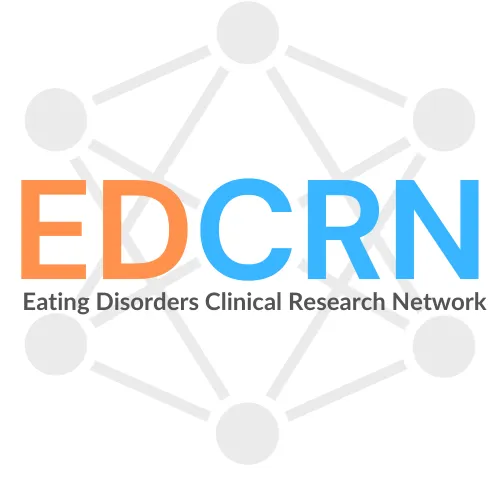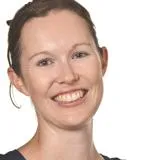UK eating disorder services are facing unprecedented demand, with effective service delivery hampered by inadequate resources, fragmented services and variable care pathways. Individuals with eating disorders, families and clinicians all agree on the critical need to improve care pathways and treatment, leading to better outcomes.
Eating disorders are serious, complex conditions influenced by a blend of genetic, metabolic and other biological, psychological and environmental factors. Further biopsychosocial research across eating disorders could allow a better understanding of the mechanisms underlying eating disorder development and better, more personalised treatments.
This project aims to establish a UK-wide NHS research network spanning child and adult eating disorder services. This will enable a step change in our understanding of who is being seen in UK eating disorder services, how our current treatments perform across different groups, and the ability to conduct eating disorder research. Together with people with lived experience, clinicians and researchers, we have agreed a core dataset to record eating disorder symptoms, treatment, outcomes, demographics, risk factors and physical health markers. The dataset will be rolled out in participating eating disorder services across the UK.
Collecting this standardised data will advance understandings of eating disorder presentations, treatments and outcomes, facilitating further research into the factors influencing the development and maintenance of eating disorders. We hope this in turn will lead to better, more personalised treatments.
The project will help address fragmentation and facilitate novel biological, psychological, and social research collaborations. The data gathered through this project will be open to all researchers for data analyses, and the collaboration we establish will form a collaborative network to enable future clinical trials, experimental medicine, and psychology.
I work in an eating disorder service, what would joining the EDCRN involve?
If your service opts to join the EDCRN as a site, your service will collect the EDCRN dataset from patients and carers who agree to take part. This data will be recorded and accessed through an online platform, developed by Eclipse, a company that has developed comparable NHS platforms for other health conditions.
The EDCRN Dataset
The EDCRN dataset has been co-produced by people with lived experience, caregivers, clinicians and researchers. It comprises patient and carer-reported questionnaire data, and clinician-reported information on eating disorder presentation, diagnosis and biomarkers (where available).
All patients receiving treatment at services who take part in the EDCRN will be invited to take part. Data will be recorded via the EDCRN platform. Services will have instantaneous access to the information provided by patients and carers, and clinicians will be able to use the platform to review patient progress. To view the dataset in full, click here.
I’m a patient or caregiver - how can I get involved?
If you or your loved one are receiving treatment at a service participating in the EDCRN, the team will be in touch with you directly inviting you to take part.
Where do I find out more?
For more information:
- Read our site information leaflet
- Watch our launch webinar, hosted 13 Jan 2025
- View responses to some Frequently Asked Questions (FAQs) about the Network
We’re accepting new sites on a rolling basis. Interested in joining the Network? Contact us on EDCRN@kcl.ac.uk.
Aims
- Consider treatment outcomes across services, helping to more effectively identify the reasons why some treatments may work better than others, and for whom.
- Identify and learn more about underserved groups by attending to the demographic characteristics of patients.
- Understand how illness duration relates to treatment outcome and progress age and stage-specific adaptations to eating disorder care.
Methods
- Establish an advisory panel, consisting of people with lived experience and carers, to input into and co-produce each of the aims throughout the project and to form long term PPIE infrastructure.
- Create an agreed standard recording methodology for demographics, duration of illness, treatment, outcome measures, and blood test results for eating disorders across adult and child NHS eating disorder services.
- Test feasibility and then enrol >50% of NHS treatment services for eating disorders, with routine standardised data systematically gathered in NHS authorised central secure computer services for approved researchers to use.
- Recruit a subset of 1000 patients, and establish a leading eating disorder biobank for blood-based studies of proteins, hormones, and other biomarkers through enrolment and blood sampling via the NIHR BioResource UK Eating Disorders Genetics Initiative.
Purpose
James Downs, a member of EDCRN’s Lived Experience Steering Committee explains why the project is needed:
“Having gone from one service to another - for example as a student - the approach to treatment and the information that I am asked to provide has been really different. The things that have been measured and the kinds of outcomes that indicate whether I am getting better or not haven’t been consistent, and this has left me feeling confused about what recovery looks like and whether treatment teams can tell me if the treatments they provide are going to work. Knowledge is power, and it can feel like we are working in the dark. Collecting the same kinds of information about treatment will really help empower services and patients to work towards better outcomes based on evidence of what works for who.”
Our Partners
This project is supported by the Medical Research Council [grant number MR/X030539/1], the Medical Research Foundation and the National Institute for Health and Care Research (NIHR).

Group leads
Contact us
Follow us on social media
- X: @ED_CRN
- Instagram: @edcrn_uk
- Bluesky: @edcrn.bsky.social
- LinkedIn: EDCRN
Related departments
- Institute of Psychiatry, Psychology & Neuroscience
- School of Mental Health & Psychological Sciences
- Social, Genetic & Developmental Psychiatry Centre
- Florence Nightingale Faculty of Nursing, Midwifery & Palliative Care
- School of Academic Psychiatry
- Centre for Research in Eating And Weight Disorders (CREW)
- Department of Psychological Medicine





